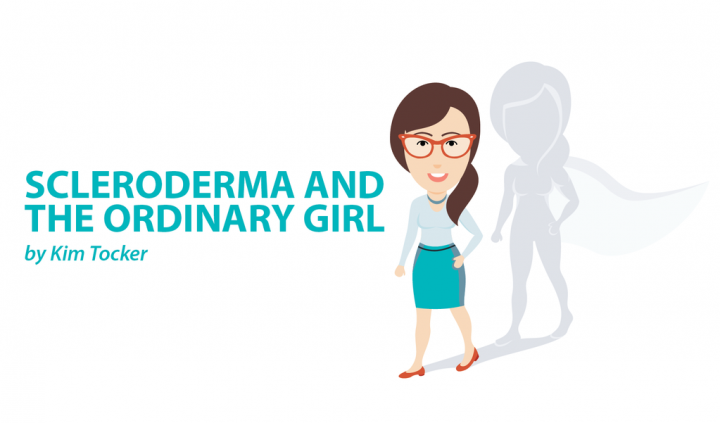Who Is the CEO of Your Disease Management?

I have recently become convinced that there is a specific event, kind of a “rite of passage,” that occurs for many chronically unwell people somewhere on their patient journey. I like to call it “The Great Transition.”
It is the point when you realize that, not only do you have a choice about what happens to your body in terms of treatment, tests, and procedures; but you also have the final say. This acceptance can then lead to the exciting prospect of being able to explore and embrace alternative therapies. For me, it has certainly meant taking a more proactive, self-responsible role.
I am pleased that I can finally say with confidence, “I am the only one in control of my treatment plan.” At last, I feel like an empowered patient rather than a compliant one … and it’s about time, too. It’s only taken five years!
I remember all too well my first year as a newly diagnosed systemic scleroderma patient. Fueled by the knowledge of the serious consequences the illness brings, I felt compelled to place all power into the hands of the medical doctors. They seemed to offer a confidence in science and a variety of medication (courtesy of big pharma) that made me feel a sense of safety. “The experts are on it, have no fear,” I used to remind myself. It was a daily mantra I developed in an attempt to feel in control and stable.
However, there came a time that I finally had enough. After four years of grappling with a plethora of undesirable side effects caused by many of my prescription medications, the final straw came. My doctor told me that my adrenal glands had become irrevocably damaged because of steroid use.
Prednisone controlled the inflammation, but it had been all that was offered at the time. As a compliant patient, I did not consider alternative therapy options such as acupuncture, the use of plants and herbs, diet changes, or non-Western medicine, among many other choices. Because I was afraid, I had allowed the doctors to think for me, and relinquished any responsibility. With empowerment at hand, I found enough faith in myself to step up and take it. It was a scary yet exhilarating moment when I bravely decided to try some alternative treatments.
While I have had some extremely positive physical changes occurring, the best transformation has been the trust I have developed in my own knowledge of what fits best with my body, mind, and spirit. While scientific, evidence-based treatments tested on the masses are important, treatments that work for me as an individual are just as important.
Balance is the important thing. Patients can surrender all responsibility to the medical professionals, or exclude all medical input and rely on their own ideas and intuitions (which often are naive approaches). But those two treatment styles are at opposite ends of a scale, and it’s wiser to have a balance between the two.
Isn’t it marvelous that I can surround myself with those conventional medical professionals who I know will listen to my ideas and collaboratively work with me? I can also invite input from a trusted team of alternative therapists. We all have something to put on the table, and at the end of the day, I decide.
This is my disease, my treatment, my unwanted side effects, and my individual responses to the medicines and treatments (either conventional or alternative). However, most of all, it is my experience living every single moment of every day for the rest of my life managing scleroderma that gives me the unique and singular right to own the role of CEO of my disease management.
***
Note: Scleroderma News is strictly a news and information website about the disease. It does not provide medical advice, diagnosis, or treatment. This content is not intended to be a substitute for professional medical advice, diagnosis, or treatment. Always seek the advice of your physician or other qualified health provider with any questions you may have regarding a medical condition. Never disregard professional medical advice or delay in seeking it because of something you have read on this website. The opinions expressed in this column are not those of Scleroderma News or its parent company, BioNews Services, and are intended to spark discussion about issues pertaining to scleroderma.








Comments